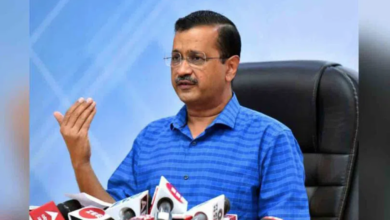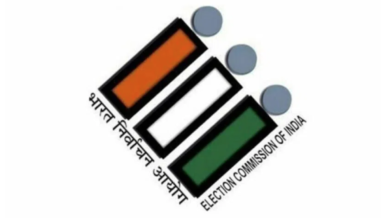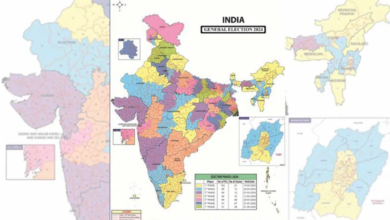Modani Files: The strange story of Adani power plant in Jharkhand

This massive, coal-fired power plant of the Adani Group in Jharkhand’s Godda, is quite a strange entity

This massive, coal-fired power plant of the Adani Group in Jharkhand’s Godda, is quite a strange entity. First of all, it came up despite mass protests and objections from local farmers and people, negative environmental impact reviews and even State officials.
The even stranger part is that the electricity produced in this plant is not for Jharkhand or for India. The entire power will be exported to Bangladesh. Even the coal used to generate the power is not from any local mine, but largely from Adani’s mines in Australia.
Why this is pure irony is because Jharkhand is a resource-rich State, accounting for more than 40 per cent of the mineral resources of India, with the Adani project situated amid some of the richest coal deposits in the nation.
There is more irony when we come to the part where Bangladesh is purchasing the power. In June 2015, Prime Minister Narendra Modi went on a trip to Bangladesh and in a joint declaration with the Prime Minister of Bangladesh, said, ‘we can do more together in the power sector, here and in India.’
Barely two months later, on August 11, an MoU was signed between Adani Power Limited and the Bangladesh Power Development Board for APL to set up a 1600 MW coal-power plant at a suitable location in India to supply electricity to Bangladesh.
By December 18, Adani Power (Jharkhand) Limited was formed, an SPV, and an unsolicited proposal was sent to BPDB about the proposed plant in Jharkhand.
In March 2016, APL requested the Jharkhand government to allocate around 1000 ha of land in Godda district for the project. The BJP-government in Jharkhand began dutifully acquiring 917 acres of land and in March 2017, using dubious tactics, even got indigenous tribes and local villagers evicted from their ancestral land.
By October 2016, the government also changed the long-standing energy policy that required that a power producer located in the State to supply at least 25% of the electricity generated at its plants to the State at a concessional price, thus allowing Adani to export 100% of the generated capacity to Bangladesh on the promise of an alternative source of supply of power by Adani.
The State Audit said the revised terms could cost the State an additional Rs 296.40 crore every year. Over the course of 25 years – the duration of Adani’s power purchase agreement with Bangladesh – Jharkhand could end up paying the company an additional Rs 7,410 crore for this alternative source of power supply.
There were more instances of rules being broken, changed and bent to suit Adani. In February 2018, APL applied for the creation of an SEZ at the Godda site. However, the Commerce Ministry in 2016 had specifically prohibited SEZs around a single power plant. The application was rejected.
By February 2019, the same Commerce Ministry changed the SEZ regulations, and a month later, the Adani project in Jharkhand became the first standalone power project in India to get the status and benefits of a Special Economic Zone. The decision bestows huge tax savings.
Now to the bigger irony that we talked about earlier. The entire power generated from Godda is being exported to Bangladesh, which is already a power-surplus country, and has 40 percent more power generation capacity than peak demand.
But the deal with Adani, literally forced upon Bangladesh since the then government did not want to rub Modi on the wrong side, now requires Bangladesh to pay Adani roughly $450 million a year in capacity and maintenance charges regardless of whether it generates any electricity.
Transport/shipping costs of imported coal and transmission costs of an Adani-built high-voltage line across the border too will be passed on to Bangladesh. It is estimated that Adani’s electricity will cost more than five times the market price of bulk electricity in Bangladesh.
Last heard, the BPDB had asked for a review of the agreement, with voices within Bangladesh too now getting louder against the atrocious deal. But then, Adani has already made his coal empire safe, with the Modi government continuing to help him unearth more of the buried sunshine.








